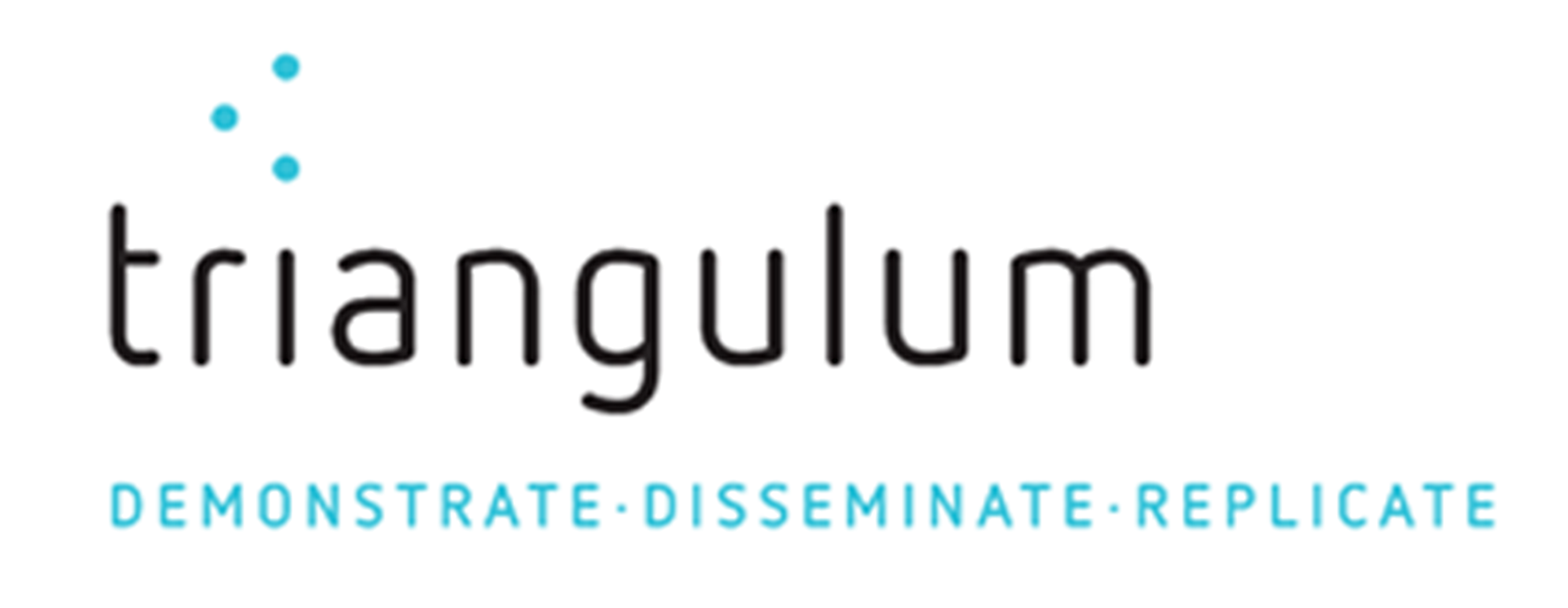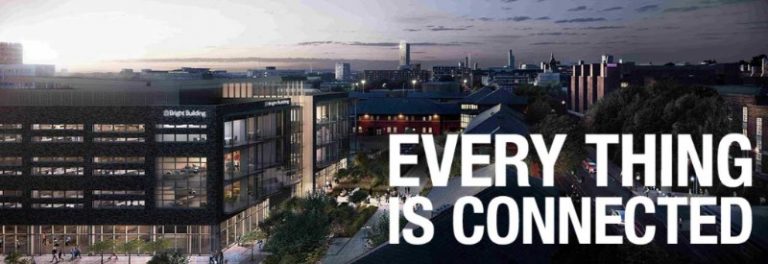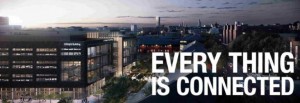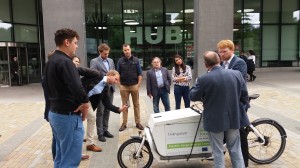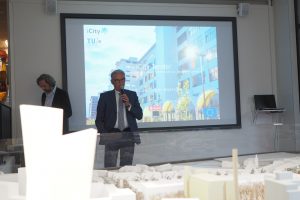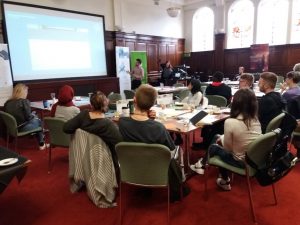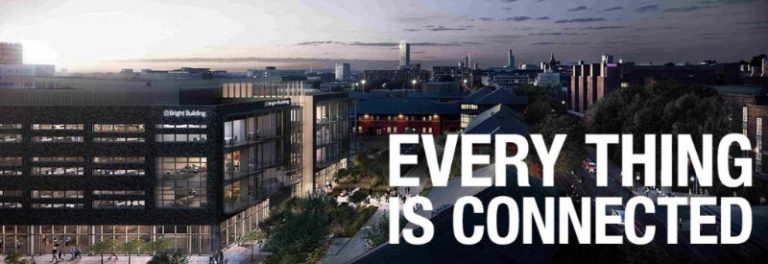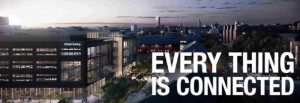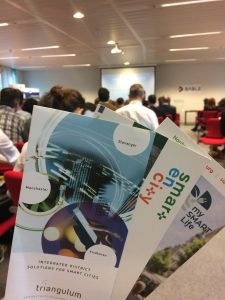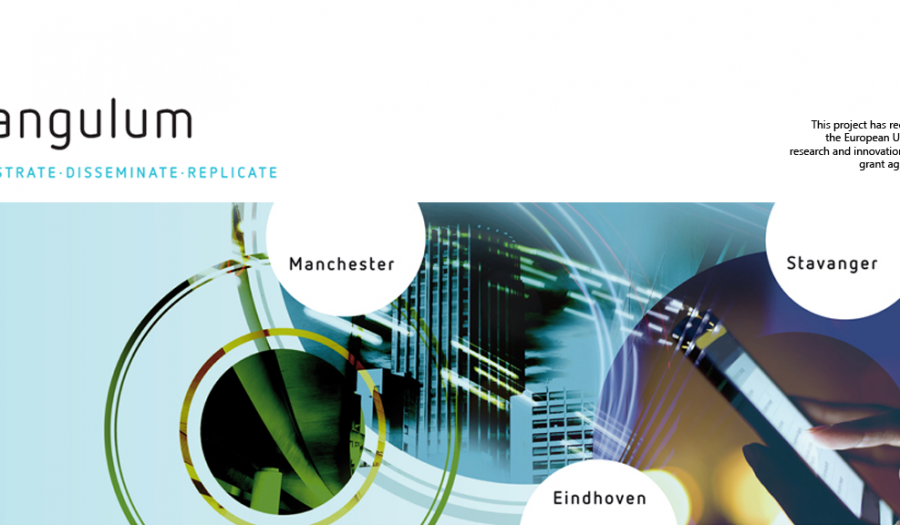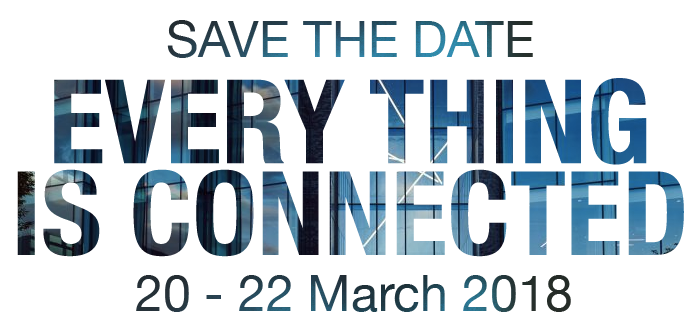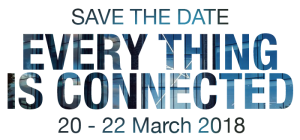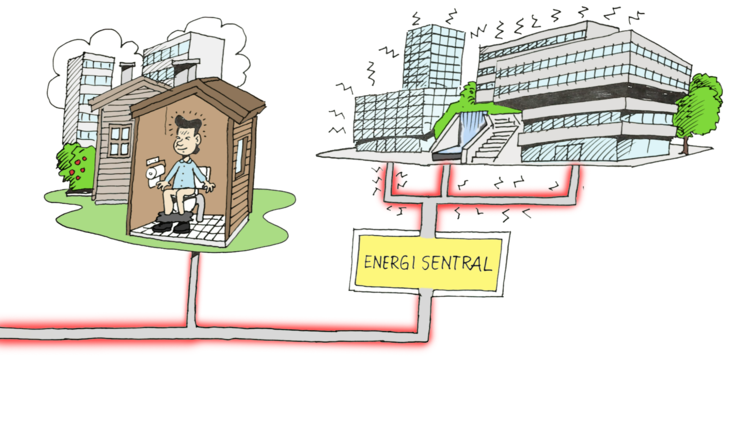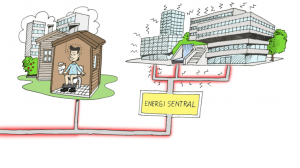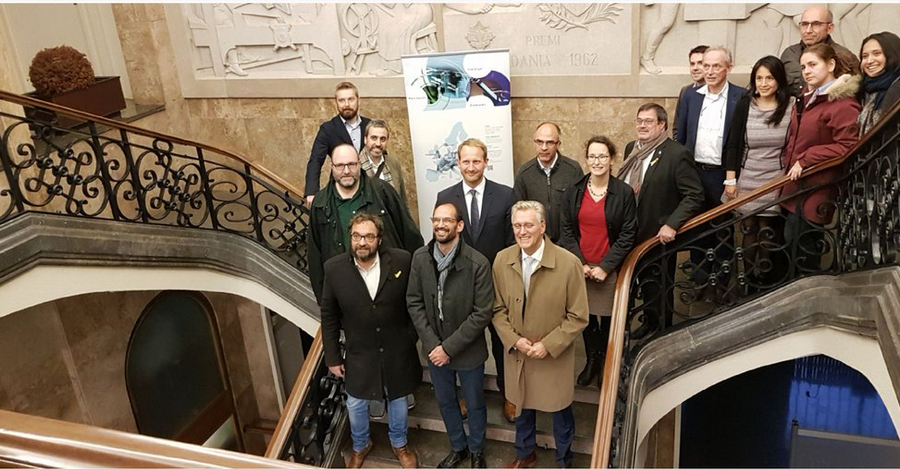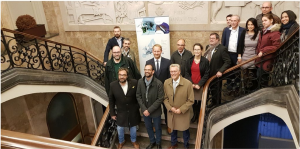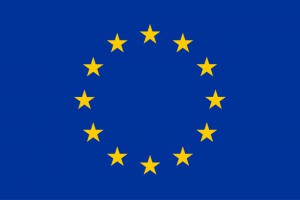On 12 April 2018, Triangulum and the representatives of the other eleven Horizon 2020 SCC1 smart city projects met in Lisbon during the Portugal Smart City Summit to sign a manifesto of cooperation. The manifesto is an agreement between cities to significantly change the smart city market place. The signing took place during a day full of workshops where the 76 cities from all over Europe discussed their progress in enhancing energy efficiency and collaborating with the private sector to create models for doing business that will perpetuate and multiply the effects of the EU’s investment.
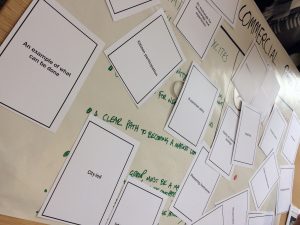
(Picture: Steinbeis-Europa-Zentrum)
In one such model, companies are fronting the money for green developments, asserting their social responsibility, and recouping investment from energy savings that accrue from systems that are more efficient. By fitting old buildings with better insulation, solar panels and management systems that give residents more control over their energy use, cities can slash their CO2 outputs. The money saved then pays for the initial investment, plus an attractive return. Projects that pilot these and other business models create precedents that can then be employed across Europe to benefit the economy, the cities and their citizens.
Just as shops buy food at one price and sell it at another, there are different price potentials for smart city solutions. ‘Packaging’ means agreeing on a set of standards, for example when building smart lampposts, that are sufficiently generic for one product, or model, to be employed in many cities – while still allowing for personalisation. During one of the Lisbon workshops, cities worked to find the common ground upon which they could find easy-to-build solutions with a clear value proposition, at once component-based and interoperable at an affordable price. Packaging is a tool which cities can employ to cut costs so that residents can enjoy a better future with a lower price tag. Through European funded projects, cities become laboratories where innovative ideas like these are tested, and when projects collaborate and share their results, effective solutions can be replicated, and common barriers can be identified and overcome.
The projects’ communication leaders and coordinators attended a branding workshop designed to help create a coherent brand for the Lighthouse Cities. Having a common brand helps to secure a legacy of the Lighthouse projects’ results by speaking with one voice to the outside world such as investors, suppliers, the broad public, etc. Based on intensive brainstorming and great discussions, the branding workshop worked out five key areas that the twelve SCC1 projects should act on in order to deliver better results, such as working pro-actively with large counter parties (big suppliers, banks, or even the EC), engaging with other (also non-European) cities to inspire replication and to encourage application as future Lighthouse Cities or developing a long-term plan for the SCC1 impact.
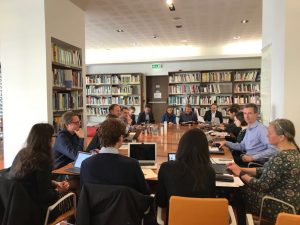
(Picture: Fraunhofer IAO)
After intensive thinking and collaborative working, a study visit to the historic Lisbon city hall inspired city leaders by showing how heritage buildings can be protected while at the same time improving energy ratings: The Lisbon city hall is a 150 year old historic building that has been fitted with 100 solar panels (during office hours!), insulated glass, a charging station for electric vehicles and a computerised sustainable energy management system hooked up to its LED lights.
At the Sharing Cities Shop right across from the Lisbon city hall, visitors heard how the Royal Borough of Greenwich, London, which is one of the Sharing Cities Lighthouse Cities, had come up against heritage regulations that made it impossible to install solar panels in the World Heritage Site on the banks of the river Thames. The solution? Focus instead on renewable energy – a Water Source Heat Pump, using water from the Thames basin – that will not change the outward appearance of the buildings and in fact take advantage of the resources of the Heritage Site. Innovative solutions like this are at the heart of smart cities, and by using EU funds to implement them, data from test cases provides proven results that convince other cities that change is possible.
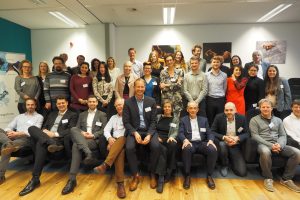
(Picture: Fraunhofer IAO)
By cross-referencing results and conclusions regarding the approach and execution of smart measures, cities boost each other’s potential for success. The demonstration and highlighting of new, tested practices encourages replication in other cities, and allows synergies between projects to emerge. When cities come together and share these result, a lot of false starts and potholes that waste money and resources while slowing down the journey to a sustainable Europe can be avoided.
In the manifesto, the Lighthouse projects therefore declared to commit to identifying opportunities and enhance impact through collaboration. Consequently, synergies will be achieved that will help to spread best practices and thus bring Europe closer to realising its climate commitments. Moreover, the Lighthouse Cities commit to continue collaboration and consultation with businesses and citizens through their Lighthouse collaboration and work together with SCIS and the EIP-SCC to develop tools and standards that can be exploited by cities outside the Lighthouse projects.
